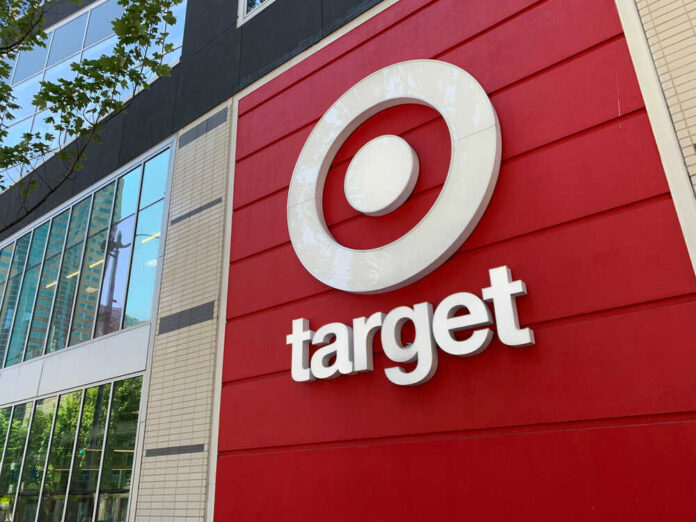
The past few weeks have been tough for big-box retailer Target and department store Kohl’s. The former, following backlash against its prominent LGBT+ PRIDE displays, experienced a precipitous plunge in its market value by $10 billion in just ten days. The latter earned the ire of many consumers for their introduction of infant clothing featuring the LGBT pride flag. While leftists laud the efforts to embrace “inclusivity,” a swelling backlash indicates that corporate wokeness could have a steep price.
On May 20, Target’s stock price was thriving at $160.96 per share. However, the retailer’s decision to introduce “tuck-friendly” and “binding” bathing suits for trans-identifying kids, among other PRIDE display items, sparked a social media outcry that led to multiple calls for boycotts. As a result, by the close of trading last Friday, Target’s stock had plunged to $138.93 per share, a 14% decrease in value roughly translating to a $10 billion loss in market capitalization for the Minnesota-based company.
If you thought Anheuser-Busch and Bud Light’s stock was sinking like a brick, wait till you see what’s going on over at Target.https://t.co/8yxut1MFZz
— OutKick (@Outkick) May 25, 2023
The same fate appears to have befallen Anheuser-Busch, which suffered a loss of $17.5 billion after a short-lived partnership with trans-identifying influencer Dylan Mulvaney.
Anheuser-Busch’s Bud Light venture went from a celebrated symbol of inclusivity to a public relations disaster seemingly overnight. The aftermath of these corporate decisions signals an essential lesson for other companies: The perceived politicization of consumer products could have severe economic consequences.
Kohl’s, following the footsteps of Target and Bud Light, has now been thrust into the spotlight of controversy. To commemorate Pride Month, Kohl’s rolled out infant onesies emblazoned with the LGBT pride flag. But not all customers have been thrilled with the retailer’s foray into identity politics. Social media users have already begun echoing the calls for boycotts, with comments like “Another company needing Bud-lighting.”
Another Company needing Bud-lighting! https://t.co/IiMNt4MRTd
— Texas Papa Bear Hayes 🇺🇸🇺🇸✝️✝️ (@bear_hayes) May 29, 2023
Jared Dinges, a beverage analyst at JPMorgan Chase, perhaps said it best when he stated, “We believe there is a subset of American consumers who will not drink a Bud Light for the foreseeable future.” The same appears to hold for Target and Kohl’s, whose shares may continue negatively impacting their marketing decisions.
These recent market trends underscore a clear message to corporate America: While inclusivity and representation are laudable goals, the execution of these ideals needs to be approached with sensitivity and respect for the diverse perspectives of all customers. Companies must recognize that their consumer base is composed of a myriad of beliefs and values, and the failure to cater to this diversity can have dire economic consequences.
This wave of consumer reaction reminds corporations that they must tread carefully in the realm of social issues. After all, the primary role of these businesses is to provide goods and services that customers want and need. They risk alienating a portion of their consumer base when they divert from this primary role and step into contentious social debates.
It remains to be seen whether the likes of Target, Bud Light and now Kohl’s will learn from these instances, recalibrate their marketing strategies, and perhaps most importantly, refocus on their primary role of catering to their customers’ diverse needs and preferences. If they fail to do so, they might find themselves in the same position once again – hemorrhaging billions in market value and facing consumer backlash.















